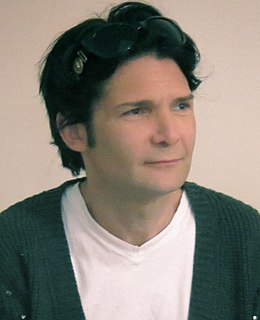A Quote by Daniela Ruah
No actor has a flawless career, but in the long term, I'd like my name to be synonymous with good quality.
Related Quotes
The most important thing that a company can do in the midst of this economic turmoil is to not lose sight of the long-term perspective. Don't confuse the short-term crises with the long-term trends. Amidst all of these short-term change are some fundamental structural transformations happening in the economy, and the best way to stay in business is to not allow the short-term distractions to cause you to ignore what is happening in the long term.
Being captive to quarterly earnings isn't consistent with long-term value creation. This pressure and the short term focus of equity markets make it difficult for a public company to invest for long-term success, and tend to force company leaders to sacrifice long-term results to protect current earnings.
Sure there are some companies at the margins of our society that probably do that and I think we all have the responsibility as consumers and as investors to avoid them like the plague. If we do, they won't last very long. Doing what's right is the only possible formula for long-term - I emphasize long term - business success.




































